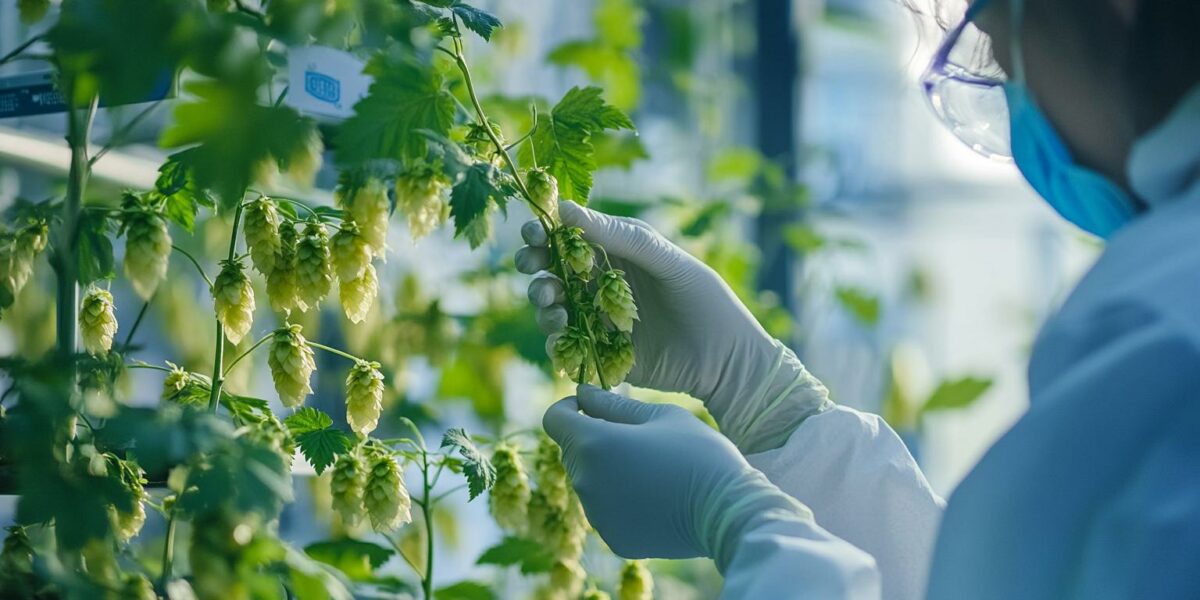Germany’s Innovative Approach to Climate Change and Beer Brewing
Deep in the heart of Bavaria, the Society of Hop Research is pioneering new methods to combat the effects of climate change on Germany’s beer industry. Their plant nursery, affectionately called “our kindergarten,” is home to 7,000 seedlings that are bred to resist rising temperatures and drought conditions.
The seedlings are not only a scientific endeavor but also a cornerstone of education for future farmers and brewers. These plants will be studied in universities and vocational schools, offering insights into which varieties can withstand the changing climate. This comprehensive education aims to safeguard Germany’s beer industry.
Each stage of the plants’ development is meticulously documented and shared with students and professionals. The goal is to identify resilient hop varieties that can survive and thrive despite climate challenges. This knowledge is essential for maintaining the high standards of German beer.
“The new varieties give our farmers the chance to have income, to have a living for the next generation,” said Walter König, the society’s managing director. This initiative ensures that future generations can continue the tradition of brewing, even as the planet warms.
The Role of Education in Sustainable Brewing
Education and research play a crucial role in Germany’s beer industry. From the Society of Hop Research to apprenticeships and the esteemed Master Brewer diploma, the focus is on sustainable practices to combat climate change. This holistic approach is essential for the industry’s future.
Walter König gives lectures across Germany, sharing insights on drought-tolerant farming techniques and pesticide reduction. The society has bred new hop varieties that require less water and have deeper roots, making them more resilient to climate variations.
At the Technical University of Munich, Professor Thomas Becker teaches students to consider climate change in every aspect of beer production. This includes soil management, energy consumption, and even the final product’s shelf-life. These lessons are crucial for the industry’s adaptation.
Key educational areas include:
- Drought-resistant farming techniques
- Reducing pesticide use
- Enhancing plant biodiversity
These elements are vital for maintaining the traditional tastes of German beer while adapting to a changing climate.
Facing the Challenges of a Warming Planet
Climate change has already impacted the Hallertau region, the world’s largest hops-growing area. Higher temperatures and less rainfall have affected the yields, forcing farmers to adapt their practices. This region is critical for Germany’s beer industry, making adaptation essential.
Andreas Widmann, a fourth-generation hops farmer, has experienced these challenges firsthand. He lost 20 to 30% of his yields in recent years due to hot, dry summers. His education in agricultural business and hop cultivation has been crucial in developing new strategies to combat climate change.
Widmann now mentors apprentices, teaching them sustainable irrigation methods, efficient fertilizer use, and the importance of selecting climate-tolerant hop varieties. His hands-on approach ensures that new farmers are well-prepared to face future challenges.
“Looking into the future of hop growing is always a very difficult thing,” Widmann explained. The need for climate-tolerant varieties is clear, but so is the demand for hops that meet brewers’ specific requirements. Balancing these needs is a complex task.
Embracing Change for Future Generations
Despite the challenges, there is a wave of future farmers and brewers ready to tackle climate change. König emphasizes the importance of teaching the younger generation about the problems and solutions related to climate change. This knowledge is crucial for the industry’s sustainability.
Some traditional brewmasters resist change, but the new generation is more open to adopting new techniques and varieties. This willingness to innovate is key to preserving Germany’s beer heritage while adapting to changing environmental conditions.
Maintaining the delicate balance between tradition and innovation is essential. The Hallertau region’s future as a major hops-growing area depends on these efforts. Climate change must remain a focal point in all educational and practical endeavors.
“It’s really always into our mind when we are educating our people,” said Professor Becker. This mindset ensures that the German beer industry can continue to thrive despite the challenges posed by a warming planet.



baileyseraphim
Germany’s approach to this issue is inspiring. Thank you for sharing!
mistyastral
Can someone explain how these drought-resistant hops actually work? 🤔
CharlesEchoes
This should be a wake-up call for all beer lovers. Climate change is real!
ClaraEcho
The fact that this is being taught at universities is amazing. Bravo!
harmonyempress
Why aren’t more countries following Germany’s lead on this?
Evan2
Absolutely fascinating! Germany really knows how to blend tradition with innovation.
LeoQuantum1
Is there any way we can support these hop research initiatives?
AsherVoyager
Wow, I had no idea climate change was affecting beer production! 🍺